Indians are one of a kind, and their customs stand out distinctly from the rest of the world. These customs are woven firmly into our day-to-day lives. It is being followed even today by the majority of the population. Are these customs meaningless in the current fast-paced world? Do they still hold much significance?
Here are some of the enthralling customs and practices followed by the Indians and their awe-inspiring reasons behind these practices.
EATING CURD AND SUGAR BEFORE HEADING OUT
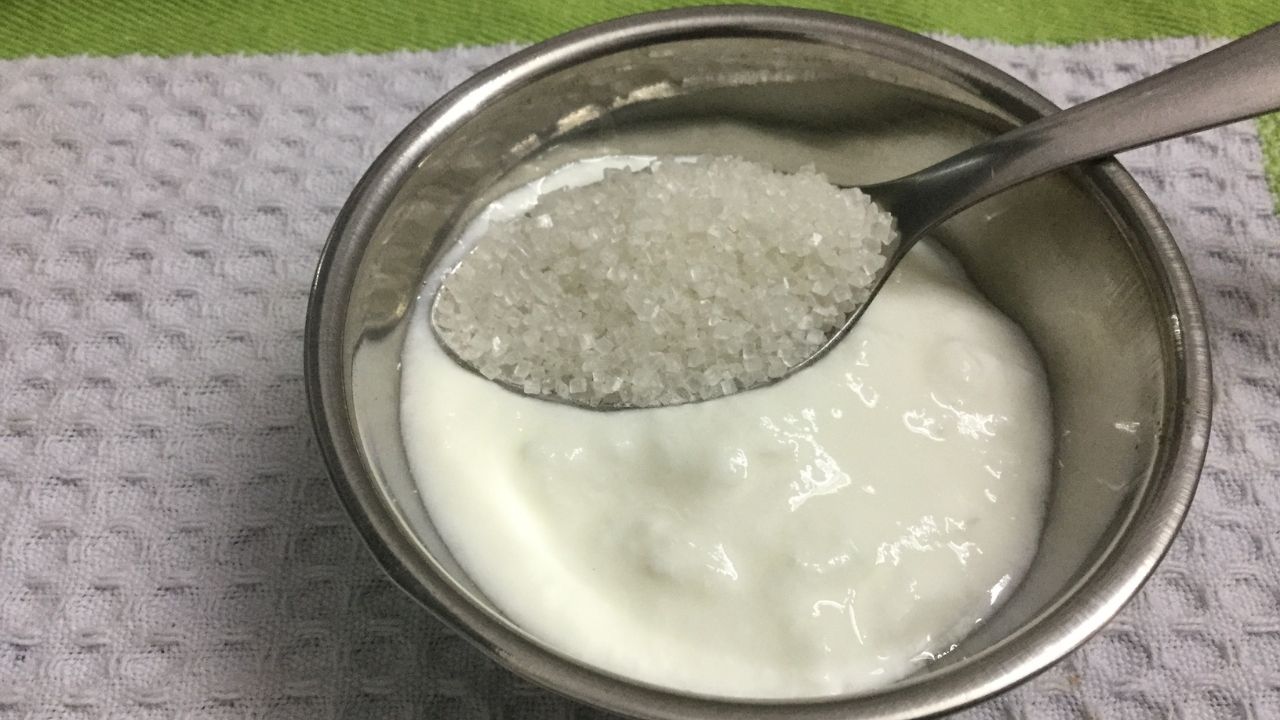
It is one incredible custom that all have witnessed in various times of life living in India. Usually, the Grandmothers / Mothers mix curd with sugar and offer it to the person heading out. They claim that eating this mixture before going out brings good luck and triumph.
The big secret behind eating curd mixed with sugar is that it is excellent for the health of the stomach. Curd is a good source of protein and calcium. It cools the body while reducing acidity. According to Ayurveda, this combination increases the glucose supply ( to the body). It also keeps both mind and body alert. Curd mixed with sugar is a super food for children preparing for exams as it gives instant energy and improves concentration. It also keeps hunger at bay and provides the necessary vitality for completing a task. In olden days, there were no eateries and restaurants Enroute and hence this was a super food.
DECORATING WITH MANGO LEAVES
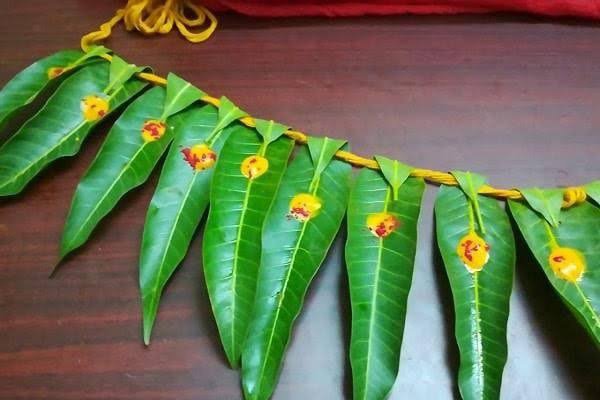
During festivals and auspicious occasions/gatherings, Mango leaves are freshly plucked, washed, folded and tied. Then they are adorned on the entrances and doorways like a THORAN. The sight of these versatile leaves flapping softly in the breeze adds a touch of grace and divinity to the atmosphere.
The main reason for using freshly plucked mango leaves is because they can absorb Carbon dioxide and emit large amounts of oxygen, even after they have been plucked and tied. This way, there is a healthy atmosphere at the gatherings. Mango leaves are also said to absorb negative energy from the atmosphere during festivals and celebrations.
These leaves are versatile and are used during poojas too. Five mango leaves are placed on the neck of a water pot/ Kalasa with a coconut on the top. The leaves symbolise limbs of Gods / Goddesses and coconut the head. Mango leaves are holy as they represent Goddess Lakshmi.
ATITHI DEVO BHAVA
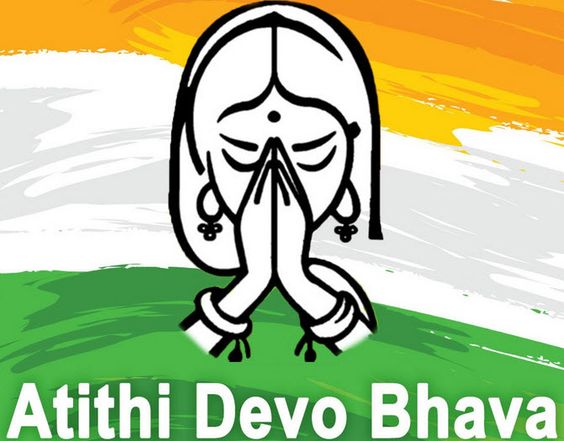
Atithi Devo Bhava- is a significant and profound phrase often used in Indian culture and tradition that is interwoven deeply into the Dharmic lifestyle of the people of India through stories and rituals.
The origin of this phrase is rooted in the Taittiya Upanishad, which states:
Matru Devo bhava,
Pitru Devo bhava,
Acharya Devo bhava,
Adithi Devo bhava.
These lines translate into - Be someone who considers his mother as God, Father as God, Teacher as God and Guest as God. Aditi is a Sanskrit word meaning guest. The guest can visit home anytime, and one must treat the guest as synonymous with God.
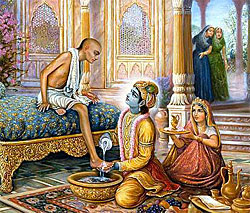
There are several stories from Bhagawat Puranam on how Lord Krishna welcomed his best friend - Sudhama. The stories talk about the loving nature of Krishna and how he showed love and respect while treating his friend graciously. Often, the grandparents pass on this custom to the next generation by citing stories as an example to explain this custom. Also, in many Indian legends and stories, the various Gods and goddesses disguise themselves and visit the homes of their devotees. Hence the practice of treating Guests equal to God evolved.
Guest in the olden days used to visit unannounced because there was no proper communication channel to inform about the arrival. The host always embraced their guests and provided them with food, water, and stay. But nowadays, due to the advancement of science, guests can always inform the host before their arrival. Nonetheless, Hindu communities still follow most rituals in welcoming guests into their homes.
WASHING ONES FEET BEFORE ENTERING A HOME
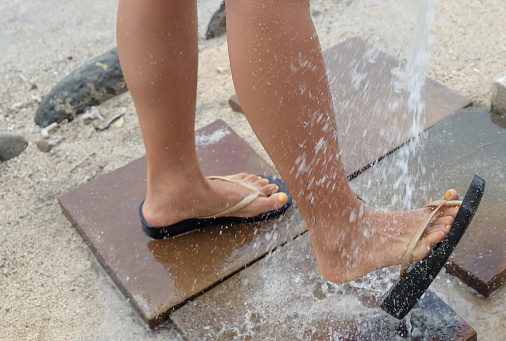
It is a common practice in India that when a person returns home, he/she washes her feet before entering the house. This practice is slowly getting washed away in the urban areas in the name of westernisation. However, we can still find this practice followed in most rural areas. This custom has simple and logical reasoning behind it.
The feet and hands of the person get accumulated with dust and germs when he travels. These germs can be infectious. Hence washing the feet and hands with water before entering the home ensures a clean atmosphere. Thus, it is caring practice devised to ensure the well-being of the beloved family members.
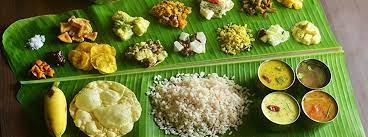
It is quite a popular tradition, especially in the south Indian states where food gets served on a banana leaf. Eating food served on a banana leaf is considered auspicious and healthy. These leaves are considered sacred and used extensively during poojas. They are also used as a plate to serve Prasad to the deities.
The banana leaves contain copious amounts of natural anti-oxidants ( found in green tea) that are beneficial for the human body. When hot food gets served on the banana leaf, these anti-oxidants get absorbed in the food. When devoured this way, the body gets stronger to fight many diseases.
Using banana leaves during a function is an economical option as well. Just cut the Banana leaves, wash and serve food on them. Disposal of these leaves poses no threat to the environment as they are easily decomposable. Also, eating from a banana leaf is hygienic as it is one-time use and throw affair. This versatile leaf also adds earthy flavours to the dishes served on it.
TOUCHING THE FEET OF ELDERS
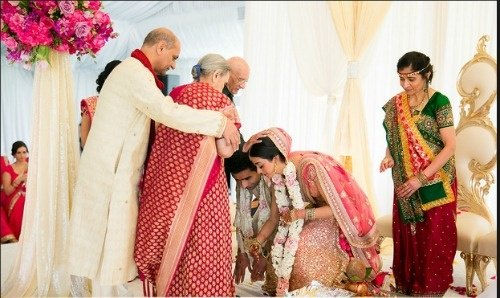
Touching the feet of elders or prostrating is an age-old Indian tradition believed to have originated during the Vedic period. This gesture is regarded to be a mark of respect and seeking blessings.
The spiritual growth in a person was kept in mind while designing every minuscule custom. This custom is at the very heart of it. One of the biggest hindrances to spiritual growth in a person is the presence of EGO. When a person bows to another, then the Ego is surrendered. The person bowing down becomes humble and advances spiritually. When the Ego is strong, it blinds a person. The reality often gets masked under it. That is the reason why people prostrate in front of the deities.

Touching the feet of an elder also has another significance. The body of a human being has a lot of nerves and nerve endings spread throughout the body. While one bows down to touch the feet of an elder, it establishes a connection between two people. Energy gets transferred by this act from the elders to the ones who bow down. This energy can be love, wisdom or intellect. Elders feel elated when one bows down and passes on positive vibrations and blessings to the person bowing down. Thus bowing down is a mark of respect that is responded to and returned in the form of love.
Elders do not necessarily mean aged people but can also denote a spiritually advanced person. In fact, bowing down / prostrating and touching one’s feet gives a powerful stretch to the body. Hence this custom benefits both body and soul of the persons involved in the act.
AUSPICIOUS DAY TO CUT NAIL & HAIR

In Hindu Darma, many day-to-day events are ritualistic and follow many rules. One such tradition is related to cutting off the nails and hair. There are certain days in the week when cutting nails and hair is considered lucky, and some days when they are considered inauspicious and forbidden.
Generally, in India, each day of the week is associated with one God / Goddess and planet. All the activities performed impacted the body and mind of the people because of their association with the divine. Hence, cutting nails are considered inauspicious on Tuesdays and Saturdays.
The ruling deity for Tuesday is Lord Hanuman, and the planet is Mars. Many people fast on Tuesdays for Hanuman Ji and do not indulge in cutting anything during the fast. Also, the planet Mars is associated with Blood flow in the body. If haircut/shaving results in cuts on the body, it could lead to excess blood loss. Similarly, Hindus refrain from cutting nails and hair on Saturdays because of the ruling Deity Lord Shani, and he does not like spilt blood. The Planet for Saturday is Saturn.
Also, cutting nails and hair during nighttime is strictly forbidden and considered inauspicious because, in the olden days, there was no good lighting inside the home during/after twilight. Hence there was a general rule to finish all work before sunset and head home. There is a possibility of injuring oneself when using scissors and nail cutters under poor lighting situations.
Another reason for devising the rule not to cut hair/nails during the nighttime was that it was challenging to clean the place in low light. Additionally, the dirt might end up on food or other consumable items. Hence this rule came into existence.
PRAYERS ON POURNAMI / FULL MOON DAY
Another widely spread custom in India is the reverence toward the Moon. Praying on Pournami / Fun moon is of tremendous significance in Indian culture. People throng their Kula Deiva temples / to offer prayers to Lord Sathyanarayana or pray from their homes.
Why do Indians give importance to the Full Moon? What is the significance of the prayers on Pournami? Stay tuned to the next issue of Verandah Club as we explore more myths about the Indian Traditions and customs and seek scientific reasons for these benevolent practices.
NEXT ARTICLE

At the southernmost tip of this mesmerising ensemble lies the majestic Great Nicobar Island, boasting an impressive landmass of about 910 square kilom...
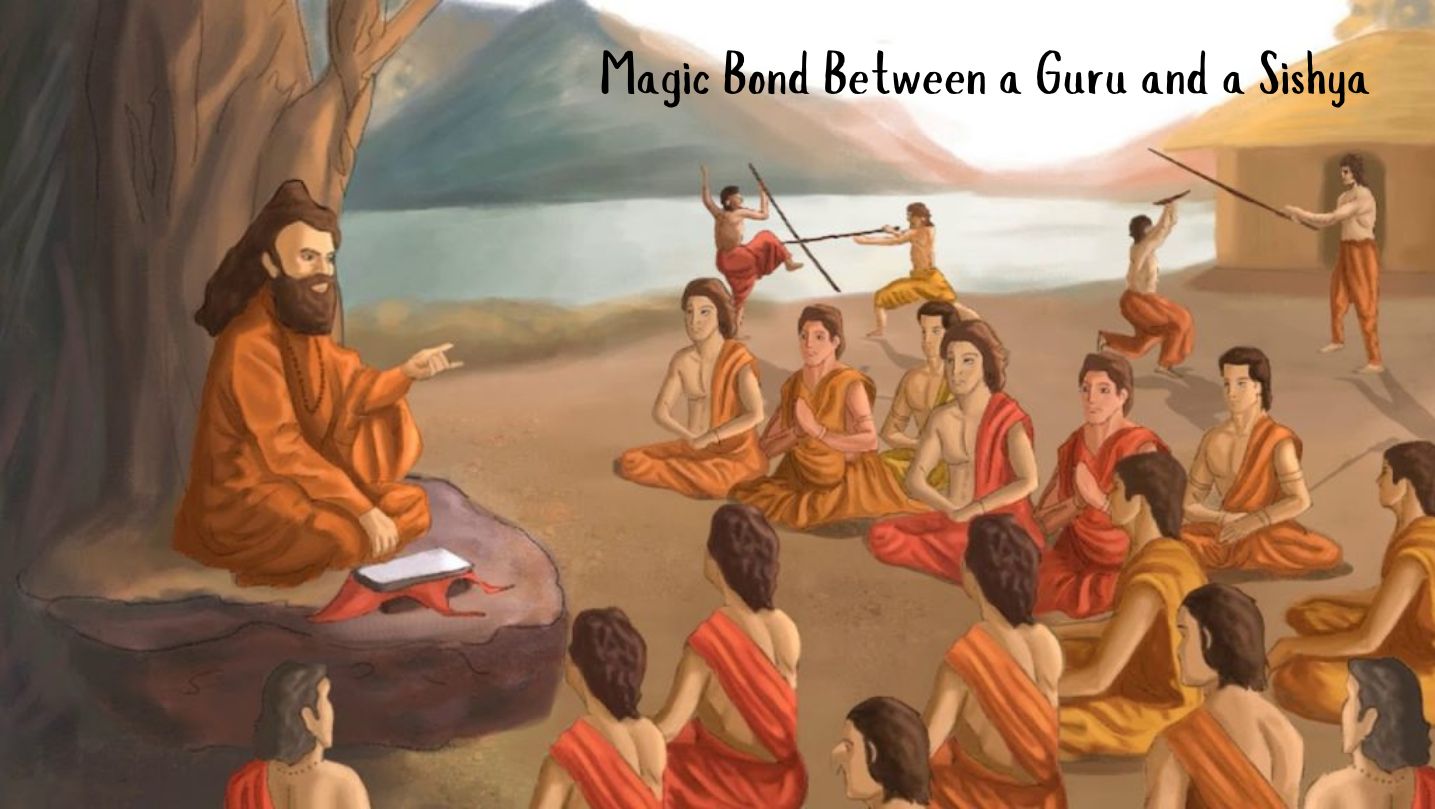
Bharath has always been a land traversed by spiritual masters/ Guru since time immemorial. These spiritual masters have always upheld the core princip...
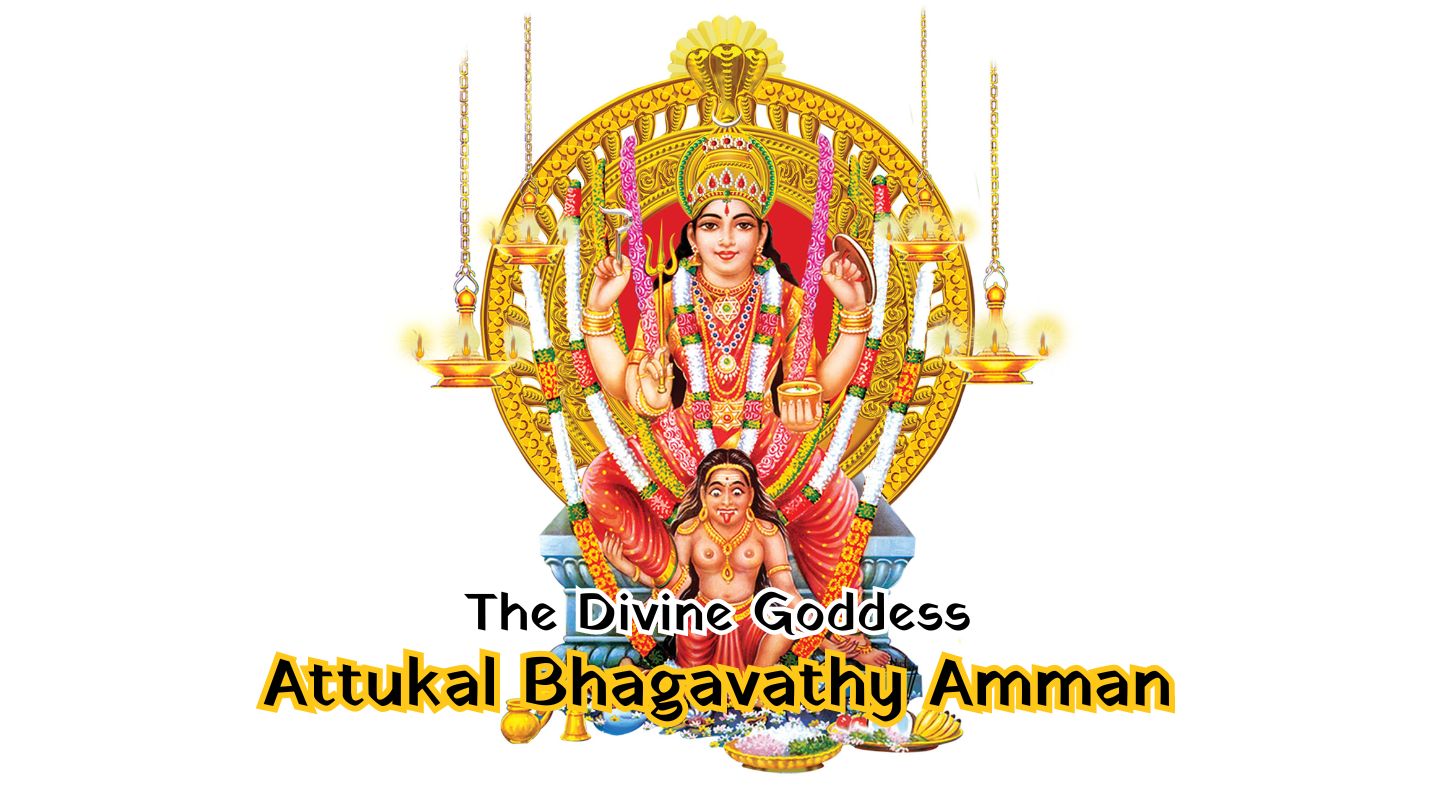
South India contains its fair share of unique pilgrimage centres. These divine places of worship have a prominent Sthala Purana, devoted followers, di...